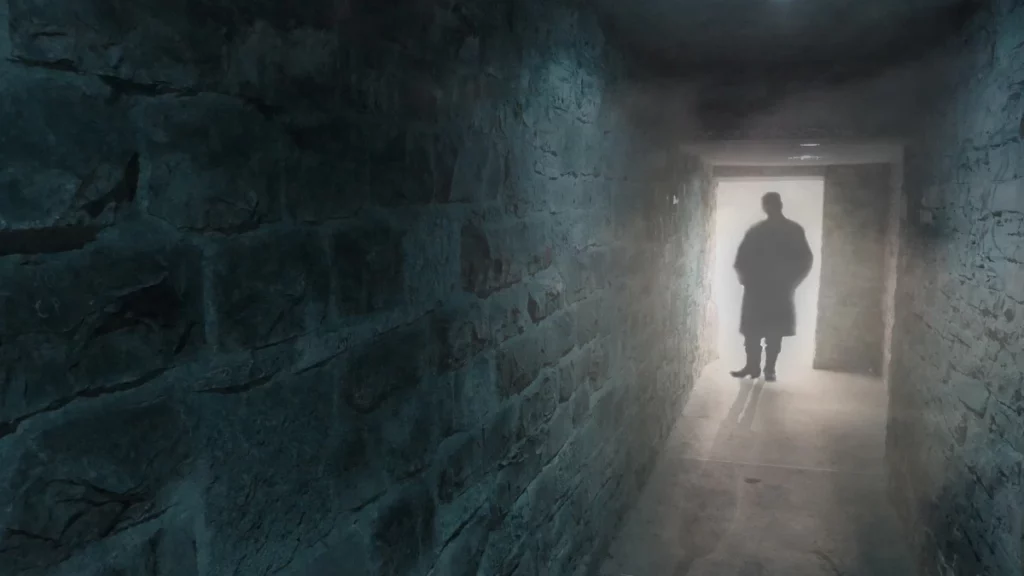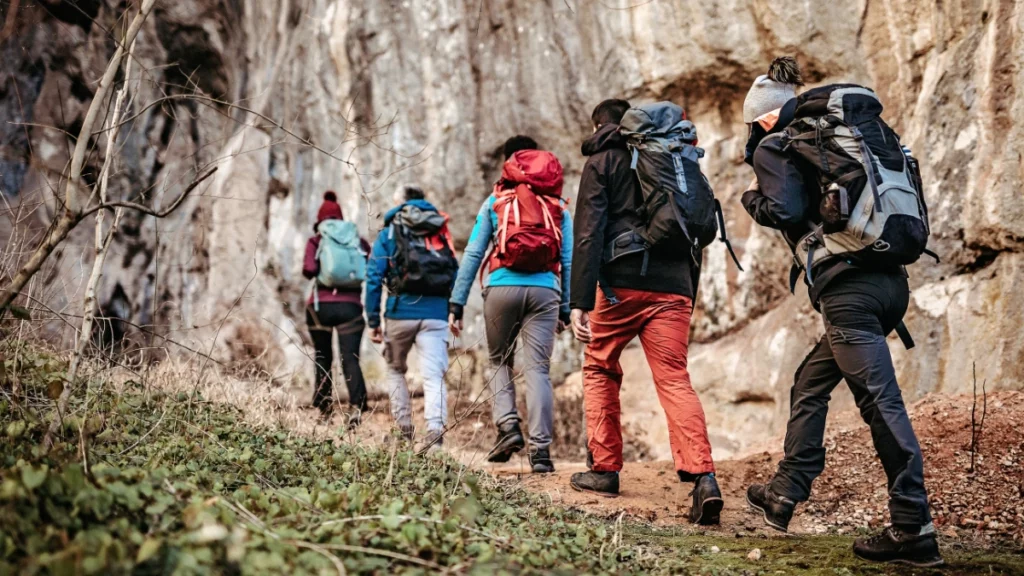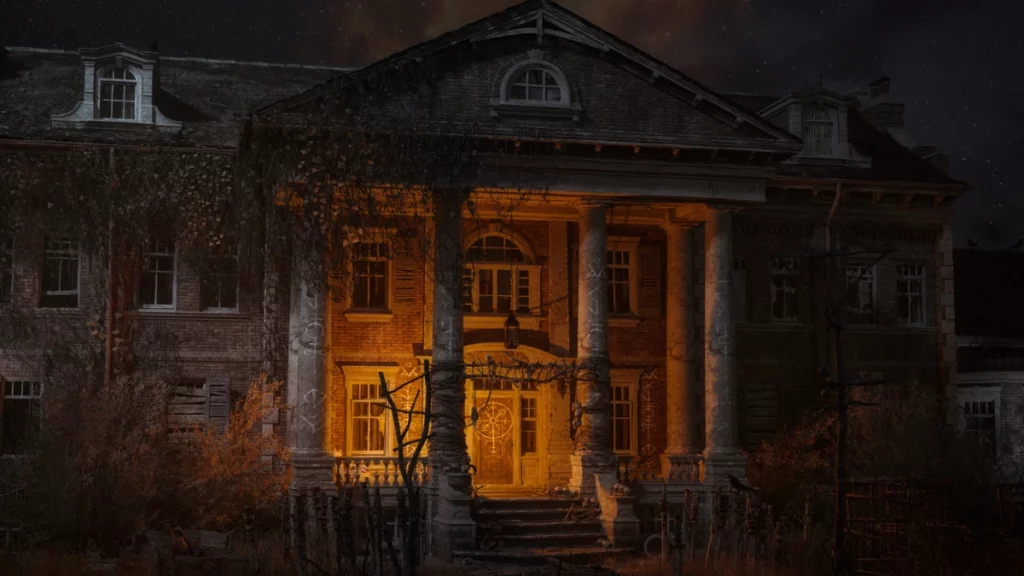Go on a ghostly journey through this article, where we unravel the allure of haunted house tours. This exploration delves into the entwining of history, culture, and the paranormal, illuminating how these ghostly gold mines reshape tourism.
Discover the booming future of haunted tourism, where technology and authenticity promise even more immersive encounters. This article unearths the economical, historical, and thrilling aspects of haunted heritage.
The Rise of Paranormal Interest: A Boon for Tourism
The rising interest in the paranormal has drastically boosted UK tourism by attracting thrill-seekers and history lovers alike. Media, folklore, and a growing cultural open-mindedness towards supernatural experiences fuel this fascination. It has transformed historic sites and locations with haunted reputations into must-visit destinations.
Tours that make money on ghost stories and eerie histories enrich local tourism and preserve cultural heritage. This kind of tourism, a blend of entertainment, education, and cultural exploration, appeals to a diverse range of tourists seeking more than traditional sightseeing.

Those intrigued by this unique travel experience and looking to delve deeper can visit SpiritShack to learn more. This increased interest in spooky lore has led to a notable rise in visitors to such areas, positively impacting local economies.
Top Haunted House Destinations in the UK
The UK is loaded with history and mystery. It is home to many haunted destinations that attract thrill-seekers and paranormal enthusiasts. Each destination gives a glimpse into the country’s rich history while giving a uniquely haunting experience perfect for those fascinated by the supernatural.
The Tower of London is famous for its bloody history. This iconic fortress is said to be haunted by Anne Boleyn and other historical figures. It echoes tales of imprisonment and execution.
Edinburgh Castle in Scotland is an ancient stronghold overlooking the city. It is famous for ghostly apparitions, including a headless drummer and a piper lost in its tunnels.
Pendle Hill in Lancashire is popular for the infamous 1612 trials. This eerie location is a hotspot for paranormal activity, which draws a lot of ghost hunters looking for spectral encounters.
Pluckley Village in Kent is dubbed as Britain’s most haunted village. It is shrouded in legends of ghostly highwaymen and other spectral figures, which makes it a spine-chilling destination.
Why People Love Haunted Tours
The deep-rooted fascination that people have with the paranormal and the unknown can be satisfied by going on haunted tours. This ghostly allure taps into our primal fear response. By engaging in these spine-chilling experiences, people have found a safe environment to explore fear.
This triggers adrenaline and endorphin rushes that create a thrilling but controlled adventure. These tours also offer a unique way to connect with history and culture because many sites are about the local legends and historical events.
Haunted tours continue to captivate audiences because of fear, excitement, and cultural enrichment. This makes them a popular choice for those seeking an unconventional tourism experience.
Ghost Tours and Local Economies
Haunted house tours have significantly revitalized local economies by attracting tourists and invigorating small businesses. There are towns where ghost tours have become a cornerstone of local tourism.

One of these towns is Pluckley, England’s most haunted village. While these tours draw visitors, they also encourage people to spend money at local hotels, restaurants, and shops. During the annual Ghost Festival in York, renowned for its eerie history, a drastic increase in visitor numbers contributed to the city’s economy. While traveling there, it might be in your interest as a male or female traveler to pack all the essentials to ensure a comfortable ghost tour experience.
This emphasizes the unique role that cultural heritage and folklore play in boosting regional tourism. It also proves that a bit of the paranormal can transform an economy.
Safety and Ethics in Haunted House Tourism
Safety and ethics are incredibly important in haunted house tourism. Tour operators must prioritize visitor safety, ensuring that emergency exits are marked. There is a need to minimize all health risks, like trip hazards.
Ethically, the history and cultural significance of haunted sites must be respected. This includes avoiding sensationalism that can distort historical facts. Maintain trust with visitors by being transparent about the nature of fear and the tour’s fictional elements.
Local communities must be respected, and the integrity of historical sites must be preserved through ethical management. These principles will ensure safe and respectful experiences while sustaining the long-term viability of haunted house tourism.
Innovations in Haunted Tourism
Haunted house tours are revolutionized by Virtual Reality (VR), which offers immersive and customizable experiences. With this technology, tourists can explore haunted locations from their homes or on-site with enhanced realism. Interactive VR tours let users engage with the environment, intensifying the scare factor beyond regular tours.
There are UK attractions that combine VR with live actors and physical sets, creating a combined experience that blurs the lines between reality and fiction. These advancements cater to a broader audience while providing a safe and controlled environment for experiencing the paranormal.
Personal Accounts: Encounters on Haunted Tours
Numerous first-hand accounts show that haunted house tours deliver spine-chilling experiences. In the eerie underground vaults of Edinburgh, a visitor felt an unexplained chill and saw a fleeting shadow despite no one being nearby.

At Pluckley, tourists regularly report strange noises and ghostly figures in the dead of night. A visitor to the Tower of London distinctly heard whispers in a supposedly empty chamber known for its royal ghost sightings.
These experiences highlight the thrilling and often unexplainable experiences that draw visitors to haunted tours.
The Future of Haunted House Tourism
The future of haunted house tourism is set for innovative expansion, integrating advanced technology to enhance immersive experiences. Virtual and augmented technology will redefine traditional ghost tours by offering visitors more interactive and personalized encounters with the paranormal. This technology opens doors for year-round tourism that isn’t impacted by weather and time constraints.
The trend towards authenticity increases tours’ focus on historical accuracy and storytelling. This appeals to a broader group of tourists, including historians. Social media and influencer marketing also play important roles in promoting haunted destinations.
Conclusion
Haunted house tourism transcends mere entertainment, merging historical intrigue and economic benefit. This evolving sector embraces technology like VR and AR, which promises to improve experiences while contributing to the tourism industry. Haunted tourism continues to attract diverse audiences while being an enduring part of the cultural and economic landscape. When traveling to immerse yourself in such adventures, it is advisable to visit travel sites to accommodate your itineraries.

